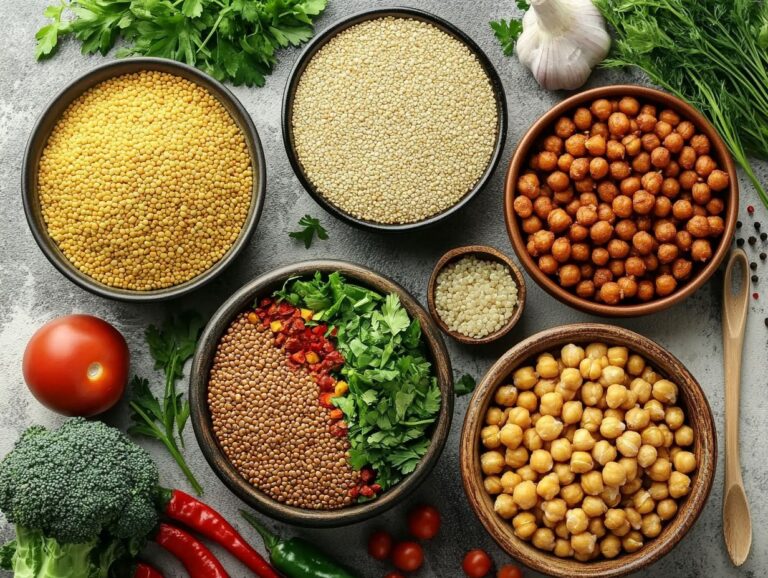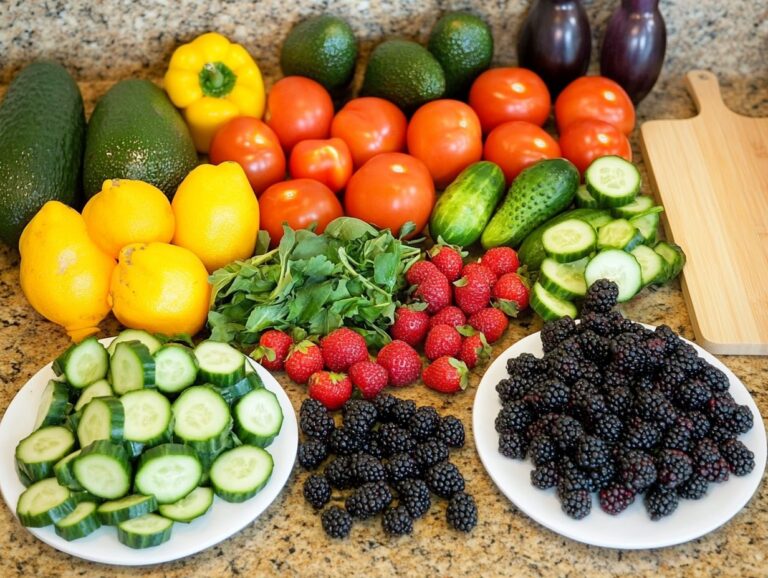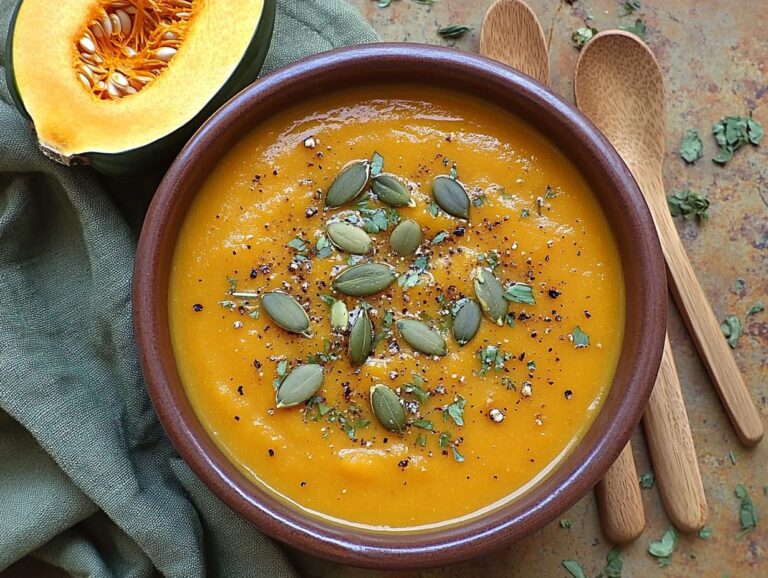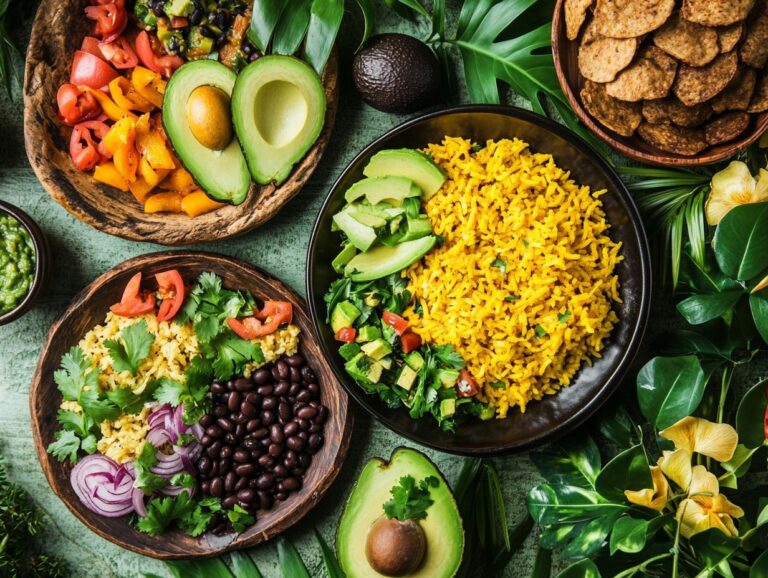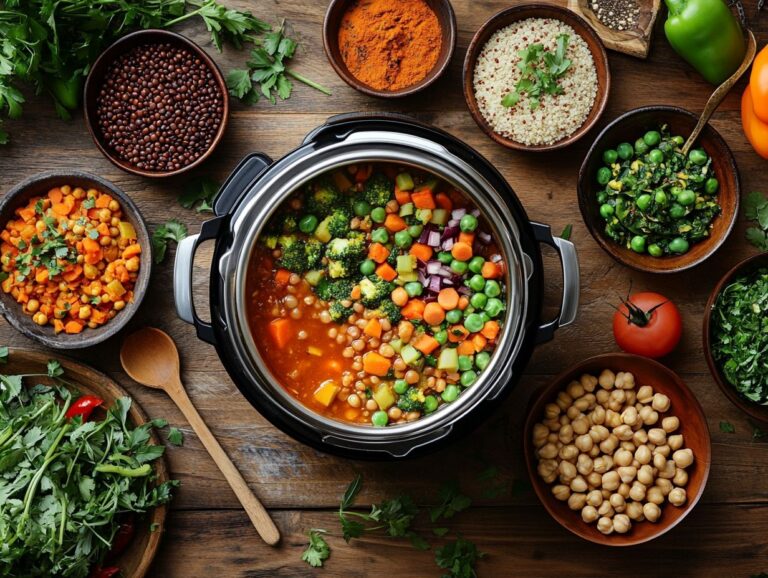Inflammation is a natural response of the body; however, when it becomes chronic, it can lead to various health issues. Understanding the role of inflammation is essential, and adopting a vegan diet can be an effective way to combat it. This article explores how plant-based foods can help reduce inflammation, highlights key anti-inflammatory ingredients to incorporate into your meals, and offers easy and delicious vegan recipes for every occasion. Discover practical tips for enhancing your diet and promoting better health through the power of plant-based nutrition.
Understanding Inflammation and its Impact on Health
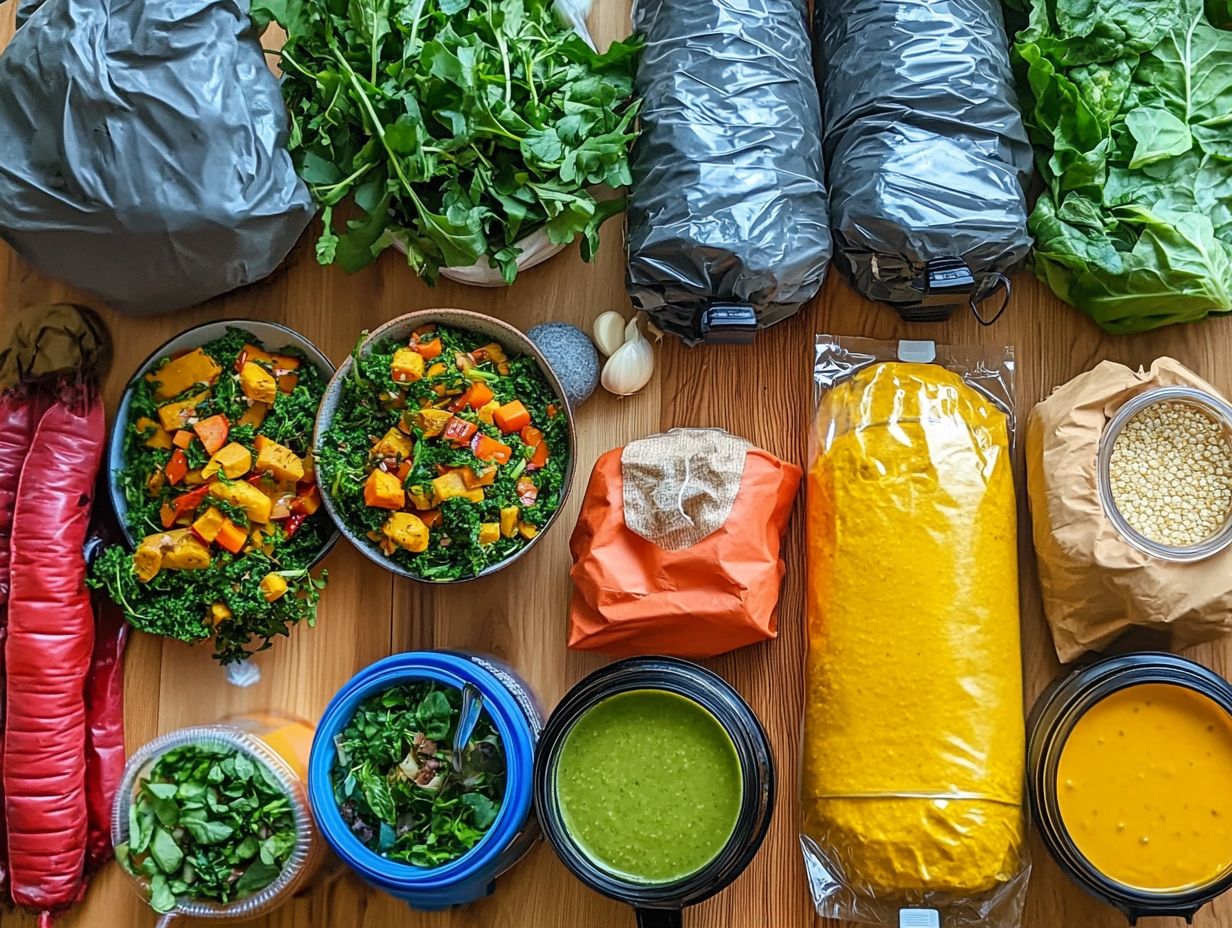
Inflammation is the body’s natural response to aggressive stimuli. While acute inflammation can be beneficial, chronic inflammation can adversely affect health and is believed to contribute to various disorders, including heart disease, diabetes, and autoimmune diseases.
Understanding inflammation and its complex role in the body is essential for implementing dietary practices that may mitigate its negative effects. A plant-based diet rich in whole foods, such as kale, spinach, and sweet potatoes, can provide essential nutrients and antioxidants that promote overall wellness and support immune function.
By specifically emphasizing inflammation-reducing foods, such as berries and nuts, individuals can enhance the health benefits of their diet and foster a more balanced lifestyle.
What is Inflammation and How Does it Affect the Body?
Inflammation is defined as the body’s protective response to harmful stimuli, such as pathogens, damaged cells, or irritants. While acute inflammation is considered a protective and adaptive mechanism, chronic inflammation is associated with various diseases and negative health outcomes. Understanding the mechanisms of inflammation provides valuable insight into its role in disease progression and recovery.
Inflammation can be classified as either acute or chronic. Acute inflammation has a rapid onset and a short duration, characterized by the classic signs of redness, heat, swelling, and pain, all aimed at healing the damaged area. It represents the body’s early response to infection or injury, involving the swift mobilization of white blood cells and other chemical mediators to the site of damage to destroy pathogens and repair tissues.
In contrast, chronic inflammation has a slow onset and persists for a long duration. It often results from unresolved acute inflammation, autoimmune diseases, or prolonged exposure to irritants. Chronic inflammation can damage healthy cells and tissues and is now linked to numerous diseases and adverse health conditions, including heart disease, obesity, diabetes, cancer, and neurodegenerative disorders.
By understanding these mechanisms, individuals can gain insight into how inflammation impacts their overall health and their risk for disease progression.
Vegan Diet and Inflammation
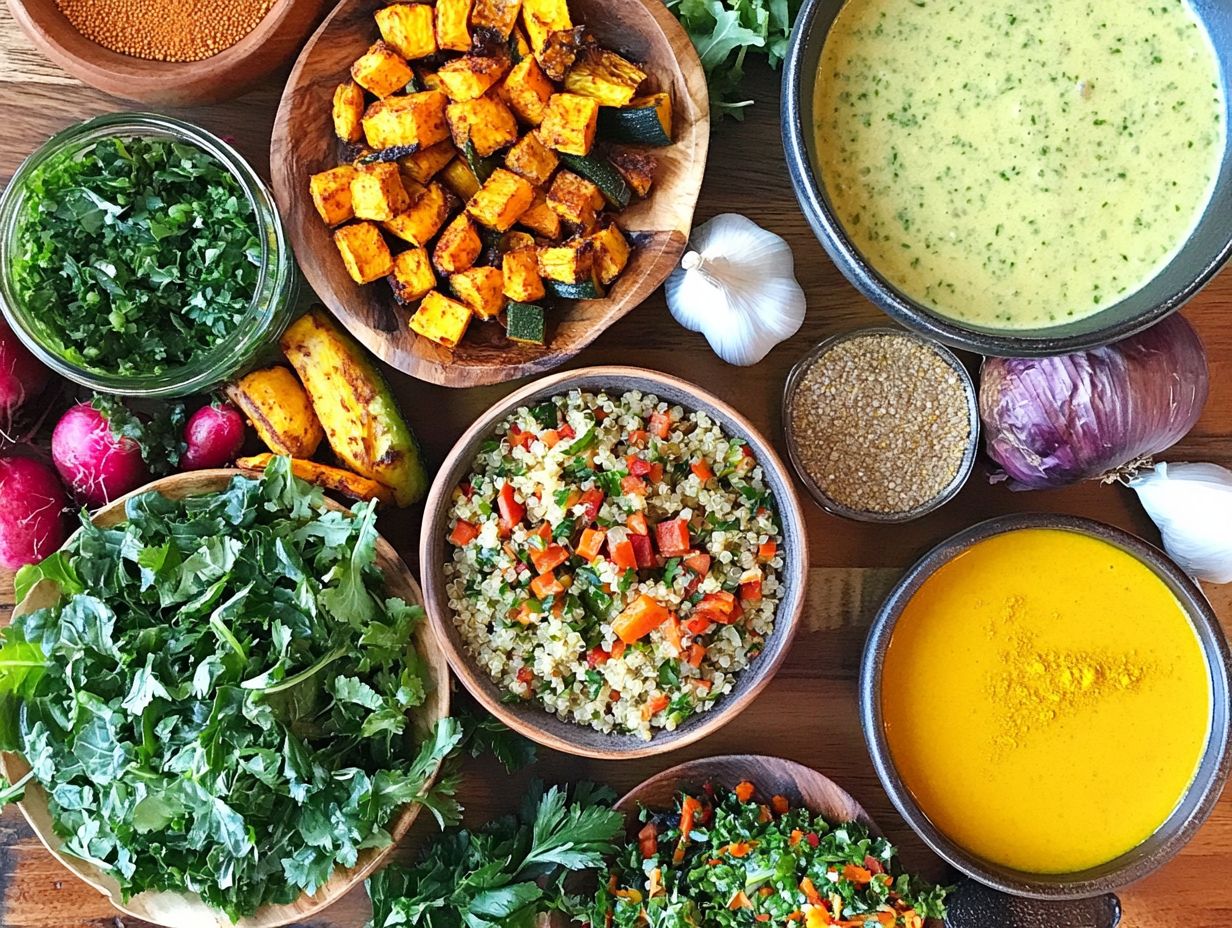
A vegan diet centers around plant-based foods and is known for its rich content of anti-inflammatory nutrients and antioxidants. This makes it one of the most effective dietary approaches for combating inflammation.
By incorporating healthy ingredients such as fruits, vegetables, legumes, and whole grains, a vegan diet has been linked to various health benefits, including improved inflammatory markers.
How a Vegan Diet Can Help Reduce Inflammation
A vegan diet can significantly reduce inflammation due to its high content of antioxidants and anti-inflammatory ingredients, which help decrease oxidative stress and promote overall well-being.
This dietary approach emphasizes whole foods, including fruits, vegetables, nuts, and seeds, that are rich in essential nutrients and phytonutrients essential for the body’s healing processes.
These foods are particularly beneficial as they are high in antioxidants, which neutralize free radicals and lower the risk of chronic inflammatory diseases. Additionally, healthy fats found in plant sources such as avocados, olive oil, and nuts further contribute to cellular function and inflammation reduction.
The high fiber content of plant-based foods, including legumes like lentils and black beans, supports healthy gut microbiomes, which have been linked to lower levels of systemic inflammation.
By adopting a vegan diet, individuals can enhance their nutritional intake with foods like quinoa and nutritional yeast, and gain a powerful ally in the fight against inflammatory diseases, reaping numerous benefits from this dietary pattern.
Anti-Inflammatory Ingredients to Include in Vegan Recipes
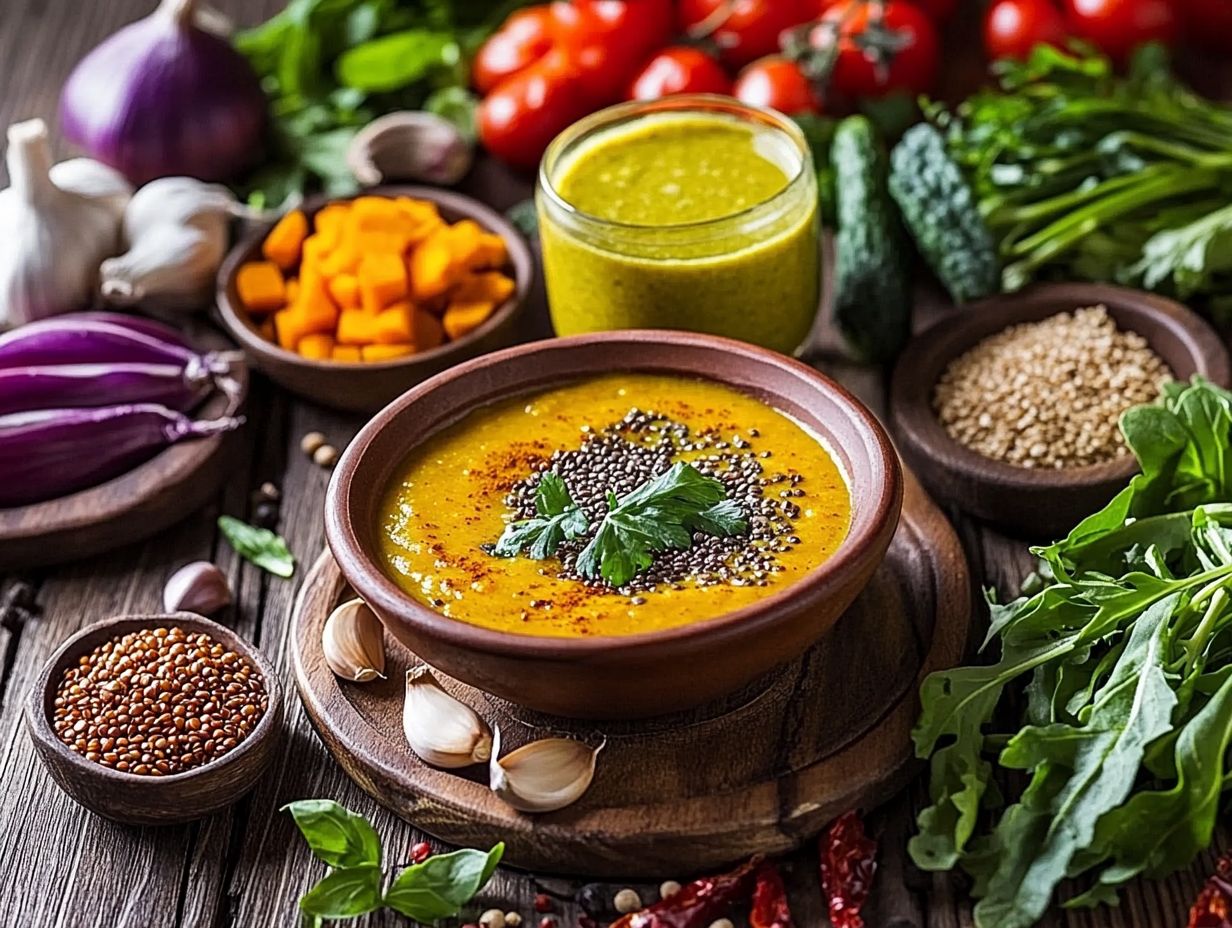
Incorporating anti-inflammatory ingredients into vegan recipes is an effective and enjoyable way to harness the healing properties of food as medicine.
Ingredients like turmeric, ginger, leafy greens, legumes, and various culinary herbs not only enhance the flavor of dishes but also provide a wealth of nutrients and antioxidants that work together to reduce inflammation and promote optimal health.
Powerful Plant-Based Foods for Fighting Inflammation
Certain plant-based foods, commonly referred to as superfoods, possess remarkable anti-inflammatory properties that can help combat chronic inflammation.
Foods such as berries, broccoli, garlic, and nuts are rich in antioxidants and phytonutrients, which not only enhance flavor but also provide a nutrient-dense addition to any meal.
Incorporating these vibrant foods into daily diets is easier than one might think. For example, adding a handful of fresh blueberries or strawberries to morning oats can offer a delicious boost of antioxidants.
Broccoli, with its high concentration of vitamins C and K, can be lightly steamed and seasoned to create a satisfying side dish. Roasted or raw nuts make for an ideal snack, providing healthy fats and protein, while minced garlic can easily be added to dressings or stir-fries to enhance both taste and health benefits.
By making these superfoods a staple in their diets, individuals can enjoy flavorful meals while actively supporting their health.
Easy and Delicious Vegan Anti-Inflammatory Recipes
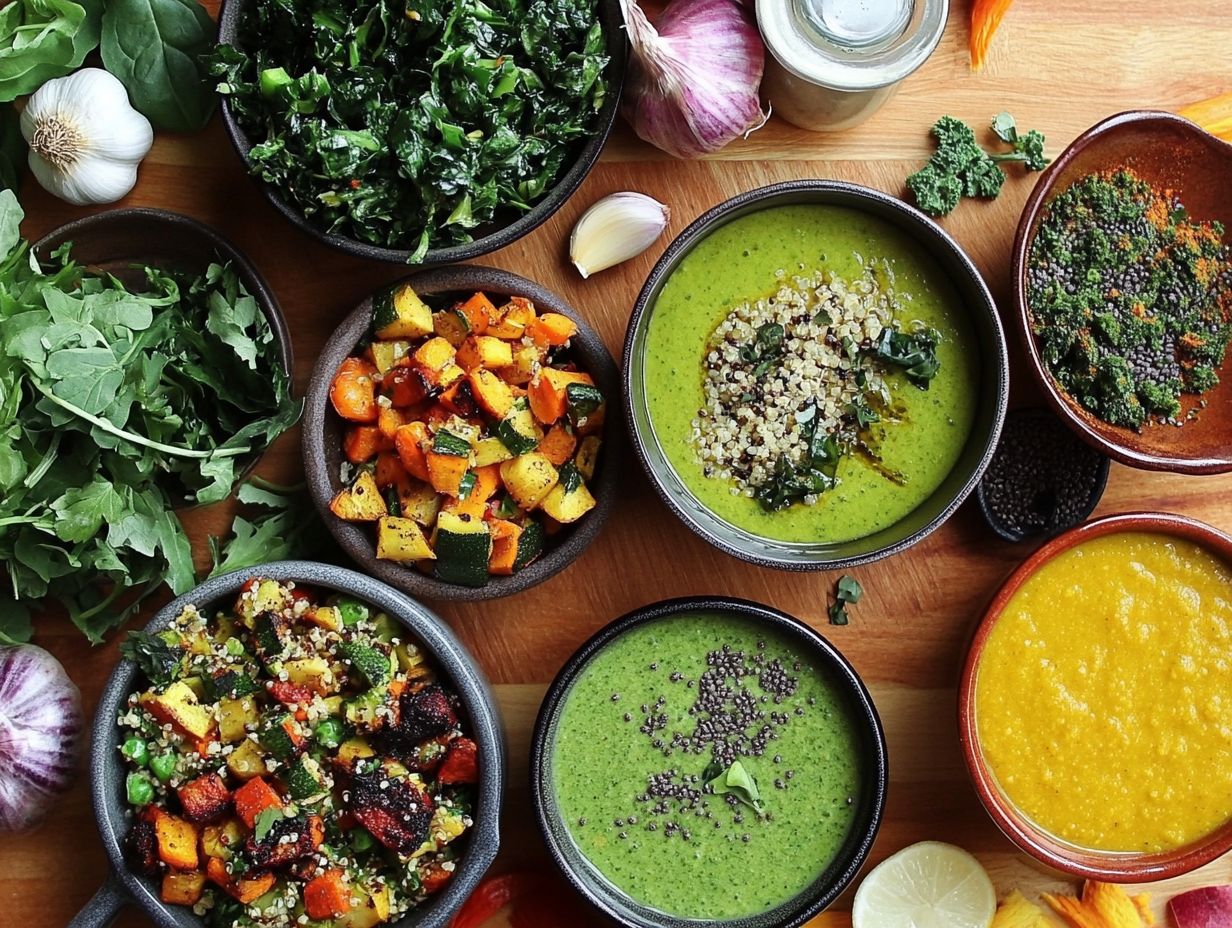
The simplest and most delicious vegan anti-inflammatory recipes provide a wonderful way to harness the healing power of food while enjoying flavorful dishes.
These recipes can be prepared using whole foods and nutrient-dense ingredients like turmeric, ginger, leafy greens, and chia seeds, resulting in filling and satisfying meals that promote health and well-being.
This approach makes meal preparation not only beneficial but also a pleasurable experience.
Recipes for Breakfast, Lunch, Dinner, and Snacks
Here are some delicious vegan recipes for breakfast, lunch, dinner, and snacks designed to reduce inflammation and promote healing.
By incorporating anti-inflammatory ingredients and focusing on whole foods, these recipes guarantee tasty meals that will nourish you throughout the day.
Tips for Incorporating More Anti-Inflammatory Foods into Your Diet
Incorporating more anti-inflammatory foods into your diet is essential for supporting overall health and combating chronic inflammation.
By making intentional choices and planning meals that emphasize healthy fats, whole foods, and nutrient-rich ingredients, you can effectively enhance your diet and enjoy the numerous positive health benefits that these foods offer.
Practical Ways to Add Inflammation-Fighting Ingredients to Meals
Incorporating inflammation-fighting ingredients into meals can be both practical and enjoyable, enhancing the culinary experience while improving overall health.
Simple cooking methods and meal prep ideas can help integrate ingredients like turmeric, ginger, leafy greens, and flaxseeds into everyday dishes. By introducing these elements, one can enhance both the flavor and nutritional value of their meals.
For instance, adding turmeric to the water when cooking rice or quinoa will give the grains a vibrant yellow color and an earthy flavor. Fresh ginger can be grated and included in stir-fries or smoothies, adding a spicy kick.
To make healthy eating more enjoyable, one can prepare a salad featuring a variety of leafy greens, roasted nuts, and ginger-tahini dressing, which is rich in antioxidants. Meal prepping these ingredients ensures that a healthy, inflammation-fighting option is always available, even during a busy week.
